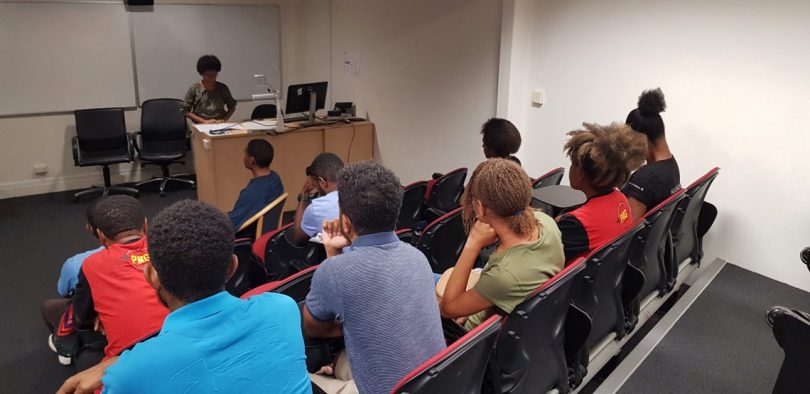Humans have evolved over centuries as a result of acquiring new information on every aspect of their lives. New information allows for growth, and in order for learning to take place, information must be transferred and acquired in a conducive environment. There are many factors that affect the learning environment of a student, such as availability of resources, the mode of transfer of information by teachers or through objects, such as books and computers, and the broader environment as well.
Living in a small town in the Southern Highlands, and being the fifth born out of seven siblings, I had to follow in the footsteps of my elder siblings. That included doing household chores, walking back and forth from school every day and staying on top of my school work. My school was on the other side of town. Since Mendi is a small town, everyone walks to school and back every day and I was no exception. A typical lunch would be a small scone and a juice which could be bought with K2, so I didn’t need a lot of money. Both my parents were working and life was good. But as we know, life is not always sunshine and laughter; as surely as the weather changes, so does life.
In 2011, my mum moved to Port Moresby, to work and live there. Life was about to change for me. Without my mum, and since my elder siblings had also moved out, I had to spend a lot more time doing household chores, including looking out for my small brother who was just four years old. Two years of hard work, managing my time between home and school responsibilities, paid off with higher grades and a move to Port Moresby, where I went to join my mother and to attend the girls-only Marianville Secondary School. Little did I know the sacrifices that awaited me in the city when it came to getting an education.
For the next four years, I would wake up at 3am just so I could do my homework till 5 am, when I would leave for school. For the first two years, that is, grades 9 and 10, I would commute back and forth from school with my elder sister. Leaving the house at 5am, we would get on one of Port Moresby’s small buses (PMVs), often after a long wait and successfully struggling through a crowd of people. After a 30-minute drive, we would get off and wait for our school bus. Living far from the school, the long journey every day was physically and mentally tiring. Most of the time, depending on the weather, the trip took over three hours, one way. School finished at 4pm, but often we wouldn’t get home till after 7. After my sister graduated from school, I continued to make the same trip on my own.
The thoughts of how far the school was from my home kept running through my mind when I would wake up every morning. The combination of homework and household chores with little sleep was tough. Sometimes due to heavy rainfall the road became flooded so we had to walk to get to school. Most of the time I arrived at school late thus missing an entire lesson or the introductory part of it. I started to my homework while travelling to and from the school in our school bus.
As if the distance wasn’t enough, my allowance per day for the four years in high school could hardly cater for anything apart from my transport fee back and forth. Finances were tough as it was just my mum who was financially responsible for my two elder siblings, my two younger siblings and myself. Despite these challenges, I managed to stay on top of my studies and graduated from year 12. When I was accepted into university, and got a scholarship, I was relieved that I could board and learn to be more independent.
Looking back on my learning experiences in Mendi and Port Moresby, I would say I was fortunate to go to a good high school, and to have my mother’s support and encouragement, but that the difficult factors impacting on my education were distance, household tasks, and finance.
This post is the final in a six-part series of personal reflections written by ANU-UPNG Summer School scholarship students. You can find the full series here.



Leave a Comment